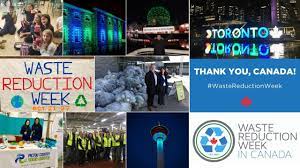%20%20-%206178146470001.jpg?)
I attended a panel discussion titled, ‘Trash Talks’ last week that was organized as part of The Centre for Community Partnerships(CCP) Social Action Pop-ups. The panel discussion was extremely interesting and informative. Not only did we learn about waste reduction, sustainable energy and the green economy we also got to learn about the intersection between waste reduction, environmental justice and environmental racism and how individuals can contribute to environmental justice in their own respect.
Some of the noted panellists included Giedre Dargeviciute from the UofT Trash team. She is also the administrative director for Sustainability Commission at Victoria University. The next panellist was, Samantha Santoro. She is currently a Research and Communications Lead at the Black Environmental initiative and a general community volunteer at the University of Toronto Trash Team. The third panellist, Nardos Tedros, is a Black Outreach Lead at Black Environmental Initiative. The moderated discussion started off with each panellist narrating their environmental advocacy journey. The panellists also talked about the many ways in which climate impact can exacerbate existing inequitable social conditions. I learnt that switching to sustainable alternatives is not financially viable for some marginalized communities owing to the ‘Green Premium’ which makes it more expensive to move towards a green economy. Following this, there was a discussion about how the governments can help underrepresented communities in the respect of moving towards a green economy. It is extremely important that governments remain sensitive to the needs of these underrepresented and marginalized communities. Any step taken towards a green economy that in any way affects these communities must be taken with the consultation and permission of these communities. They know best if the solutions proposed adequately solve the problems they are facing and whether it is a viable solution in every respect for the community. The next topic of discussion was the collective action issue. Each individual’s action adds up to make a big impact on our environment and this extends to both good actions and harmful actions.
Post this each of the panellists used the help of a slideshow to give us a little insight into the organizations they are affiliated with, what exactly their roles are and what steps they are taking towards a sustainable, green future.

0 comments on “Trash Talks Panel Event”